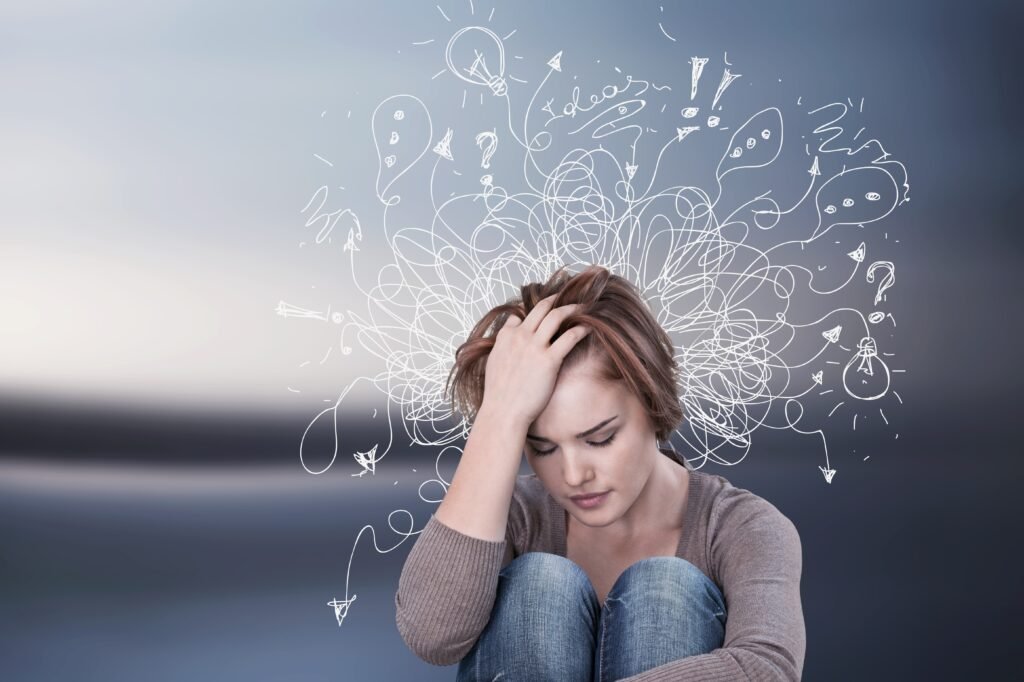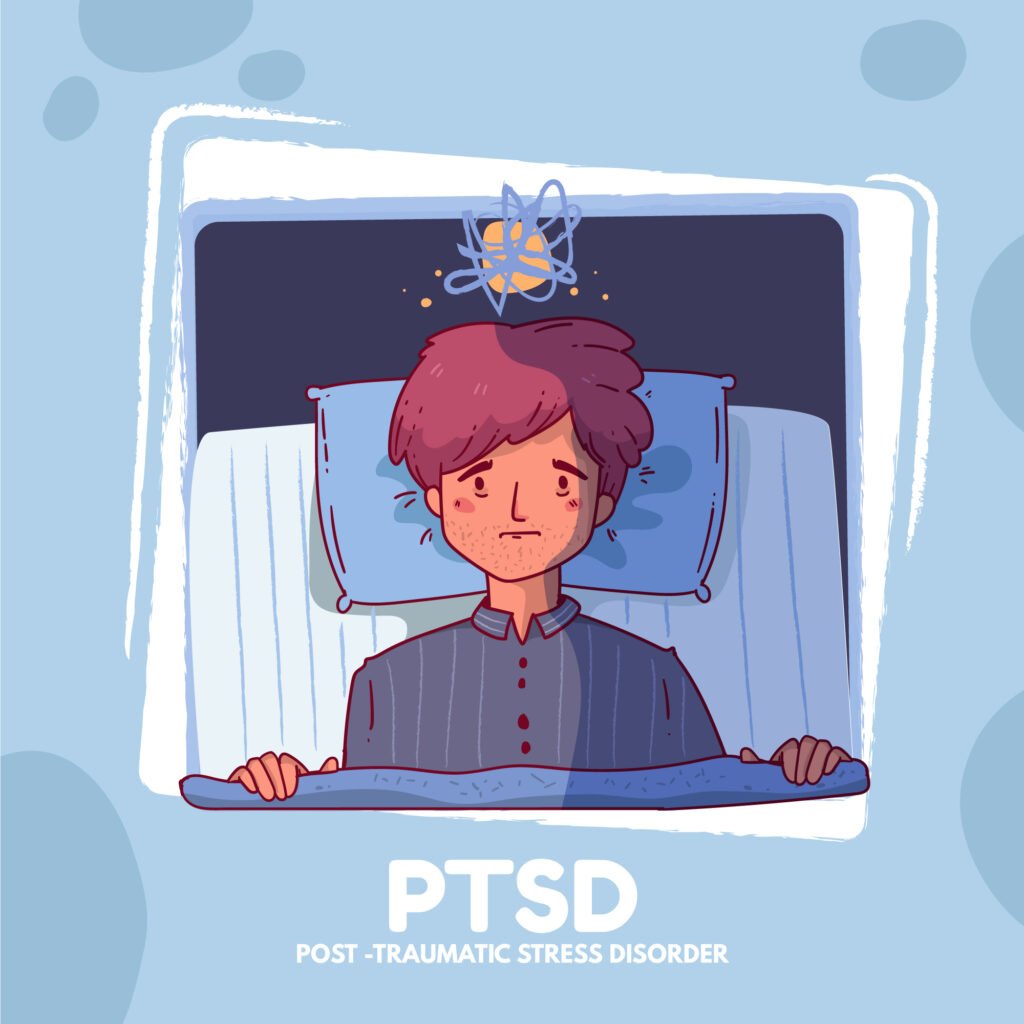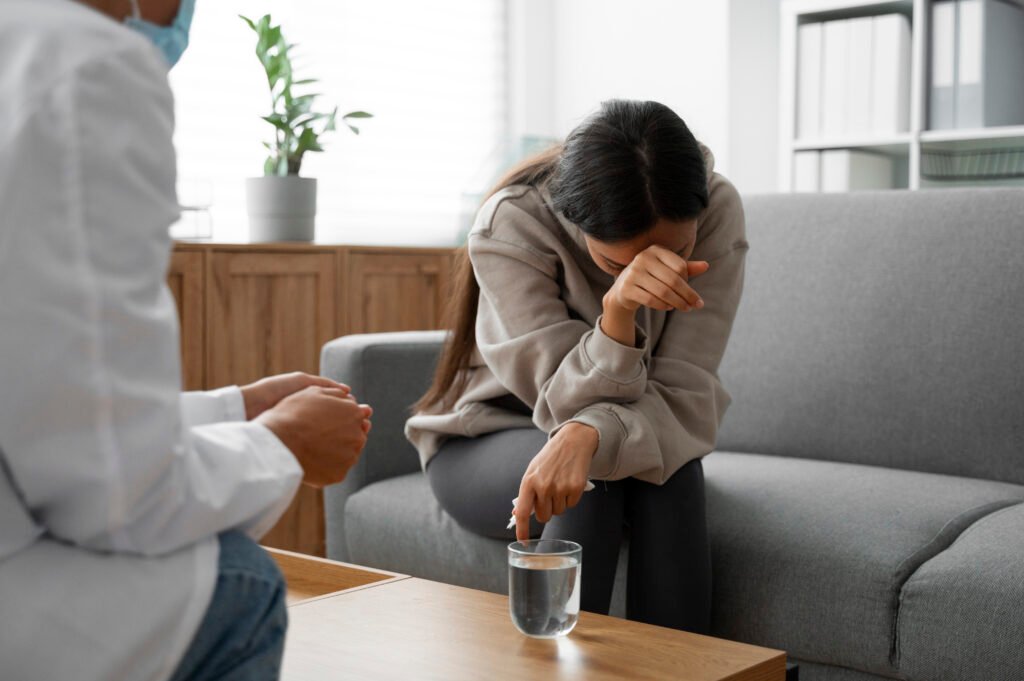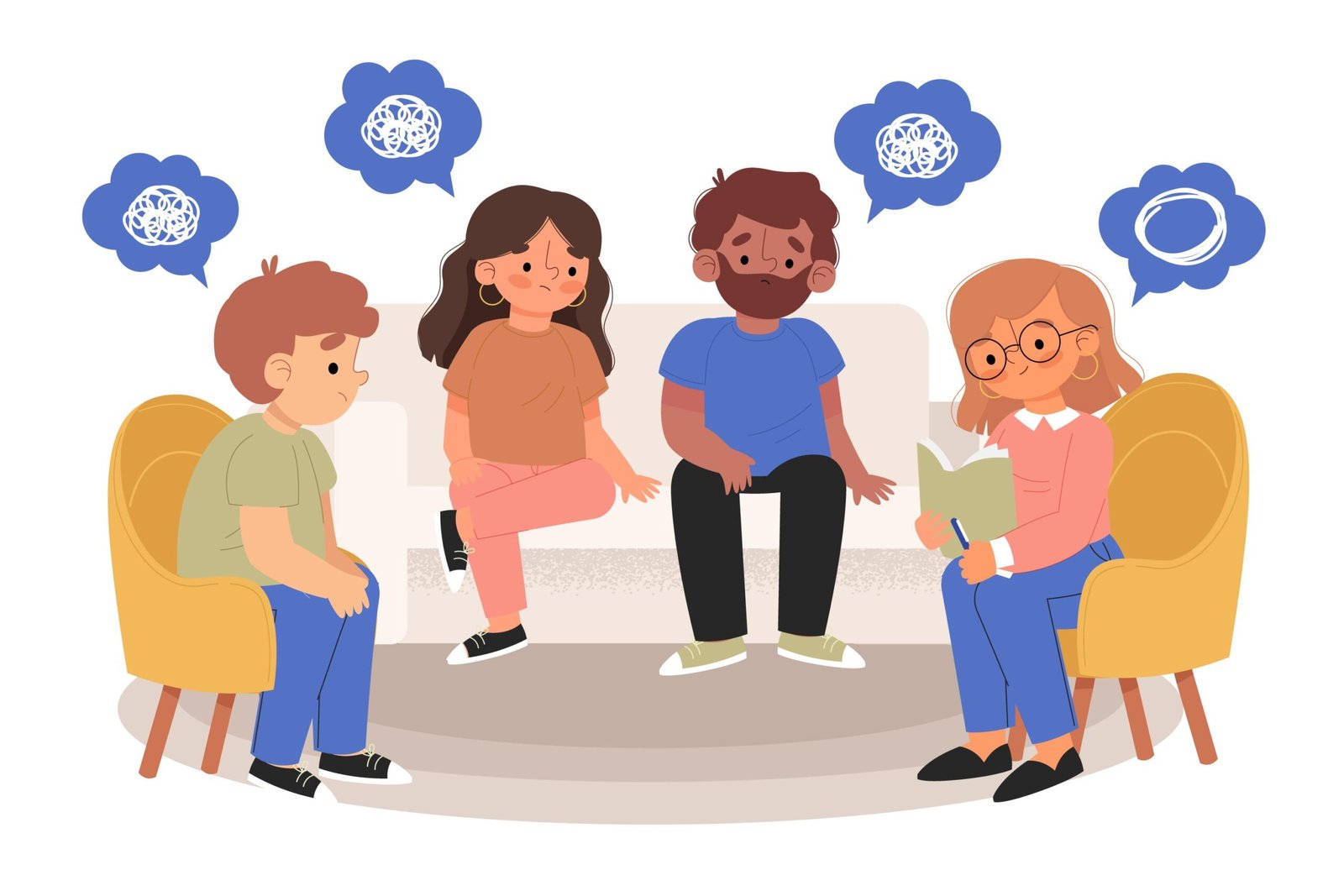Everyone feels sad from time to time, but when sadness lingers for weeks or months and affects your daily routine, it could be more than just feeling low. This persistent emotional state is often linked to depression, a common yet serious mental health condition that millions of people face worldwide.
Depression and Low Mood
Signs of Depression
- A constant sense of sadness or emptiness
- Loss of interest in hobbies, work, or activities once enjoyed
- Fatigue that doesn’t improve even with rest
- Trouble concentrating or making decisions
- Changes in sleep patterns—either too much or too little
- Feelings of hopelessness, guilt, or worthlessness
How to Overcome Depression
- Stay physically active
- Connect with others
- Practice mindfulness
- Write it down
- Limit isolation
Depression Self Help Strategies
- Prioritize good sleep
- Eat a balanced diet
- Reduce digital overload
- Seek professional help early
- Join support groups

Stress & Anxiety
Stress and Anxiety have become familiar companions for many. Whether it’s work deadlines, family pressures, or the constant noise of social media, overwhelming thoughts and tension often sneak in. But the right strategies can help transform stress into an opportunity for self care, growth, and inner peace.
Signs and Effects of Stress and Anxiety
- Rapid heartbeat and irritability
- Trouble focusing or sleeping
- Muscle tension and headaches
- Racing thoughts or constant worry
Stress Relief Tips
- Deep Breathing
- Physical Activity
- Healthy Routines
- Connect with Nature
- Laughter and Creativity
Anxiety Treatment at Home
- Mindfulness Meditation
- Guided Imagery:
- 5-4-3-2-1 Coping Technique
- Progressive Muscle Relaxation
Yoga for Anxiety and Stress Relief
- Child’s Pose (Balasana)
- Cat-Cow Pose
- Simple Pranayama (Breathwork)
Bipolar Disorder
Bipolar disorder is a mental health condition that causes unusual shifts between high-energy moods and low energy moods. These mood swings affect daily functioning, relationships, and overall quality of life.
Signs and Symptoms of Bipolar Disorder
People with bipolar disorder experience episodes of elevated mood called mania or hypomania and episodes of deep sadness or depression. Common signs include:
- Manic episodes
- Depressive episodes
- Mood swings
Causes and Triggers of Bipolar Disorder
Bipolar disorder is believed to be caused by a combination of genetic, biochemical, and environmental factors. Triggers may include:
- Stressful life events
- Substance abuse
- Irregular sleep patterns
- Medication non-compliance
Managing Bipolar Disorder
While bipolar disorder is a lifelong condition, many individuals live fulfilling lives with the right treatment plan, which typically includes:
- Medication
- Therapy
- Lifestyle adjustments
- Support system
Self Care Tips for Bipolar Disorder
Maintain a consistent daily routine to stabilize mood.
- Track moods in a journal to identify patterns or triggers.
- Prioritize sleep and nutrition to support brain health.
- Practice stress reduction techniques like mindfulness or yoga.
- Seek professional help immediately if mood changes become severe.

Post Traumatic Stress Disorder (PTSD)
Post Traumatic Stress Disorder (PTSD) is a mental health condition that can develop after experiencing or witnessing a traumatic event such as an accident, natural disaster, violence, or loss.
Signs of PTSD
- Intrusive memories
- Avoidance
- Negative changes in thinking and mood.
- Changes in physical and emotional reactions
Causes and Risk Factors
- Severity or duration of the trauma
- Previous mental health issues
- Lack of social support
- Additional stress after the traumatic event
Treatment and Healing
- Therapy: Cognitive Behavioral Therapy (CBT), Eye Movement Desensitization and Reprocessing (EMDR), and exposure therapy help process trauma safely.
- Medication: Antidepressants or anti anxiety medications may reduce symptoms when prescribed by a healthcare professional.
- Self Care: Mindfulness practices, grounding exercises, and support groups can empower survivors.
- Creating a safe environment: Building a stable, predictable daily routine aids recovery.
Self Help Strategies for PTSD
- Practice grounding techniques like focusing on your five senses or deep breathing during flashbacks.
- Stay connected with trustworthy friends or counselors to share feelings openly.
- Engage in gentle physical activity like walking or yoga to reduce tension.
- Avoid substances like alcohol or drugs that may worsen symptoms.
- Set small, achievable goals to regain confidence and control.

Obsessive Compulsive Disorder (OCD)
Obsessive Compulsive Disorder (OCD) is a mental health condition characterized by persistent, unwanted thoughts (obsessions) and repetitive behaviors or rituals (compulsions) performed to ease anxiety caused by these thoughts.
Recognizing the Signs of OCD
- Obsessions
- Compulsions
- Time consuming rituals
- Feelings of distress
Causes and Triggers of OCD
- Stressful life events
- Major changes or trauma
- Imbalances in brain chemicals like serotonin
Managing and Treating OCD
- Cognitive Behavioral Therapy (CBT)
- Medications: Selective Serotonin Reuptake Inhibitors (SSRIs)
- Mindfulness techniques: Learning to observe intrusive thoughts without reacting can reduce their power.
- Joining support groups or talking to loved ones improves coping.
Self Help Tips for OCD
- Use relaxation techniques like deep breathing or meditation to manage stress.
- Maintain a consistent daily routine to reduce unpredictability.
- Keep a journal to track triggers and progress.
- Avoid self criticism

Psychotic Disorders
Psychotic Disorders are severe mental health conditions that affect a person’s perception of reality, often causing disruptions in thinking, emotions, and behavior.
Common Types of Psychotic Disorders
- PsychoSchizophrenia
- Schizoaffective Disorder
- Brief Psychotic Disorder
- Delusional Disorder
- Substance Induced Psychosis
- Psychotic Disorder Due to Medical Conditions
Key Symptoms of Psychotic Disorders
- Hallucinations.
- Delusions
- Disorganized Thinking and Speech
- Abnormal Motor Behavior
- Negative Symptoms
Causes and Risk Factors
- Genetic predisposition
- Brain chemistry imbalances, particularly involving neurotransmitters like dopamine and glutamate
- Environmental factors such as trauma, extreme stress, or substance abuse
- Medical conditions affecting the brain
Treatment and Management
- Antipsychotics help control hallucinations and delusions.
- Cognitive Behavioral Therapy (CBT) and supportive counselling improve coping and social skills.
- Social skills training, vocational support, and occupational therapy aid in restoring functioning.
- Education and involvement of family members improve treatment adherence and reduce relapse risk.
- Early diagnosis and continuous care are essential for improving quality of life for individuals with psychotic disorders.
Final Thoughts
Awareness of different mental health disorders allows people to detect red flags early and seek help at the right time. Whether you are struggling with depression and low mood, looking for stress relief tips, or searching for anxiety treatment at home, remember that help is available.
By practicing relaxation techniques, adopting yoga for anxiety, and using simple depression self-help routines, you can gradually build resilience and restore emotional balance. Mental health is not just about survival—it’s about building strength, hope, and motivation for a healthier future.


